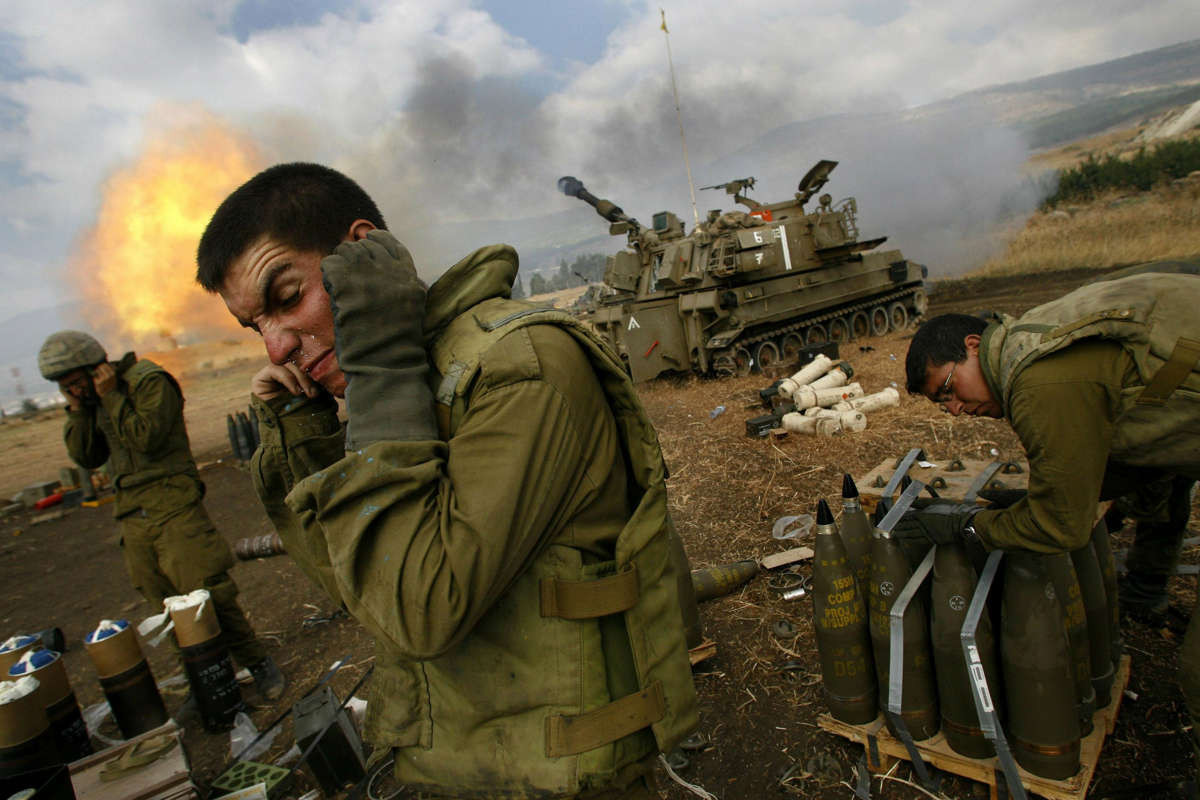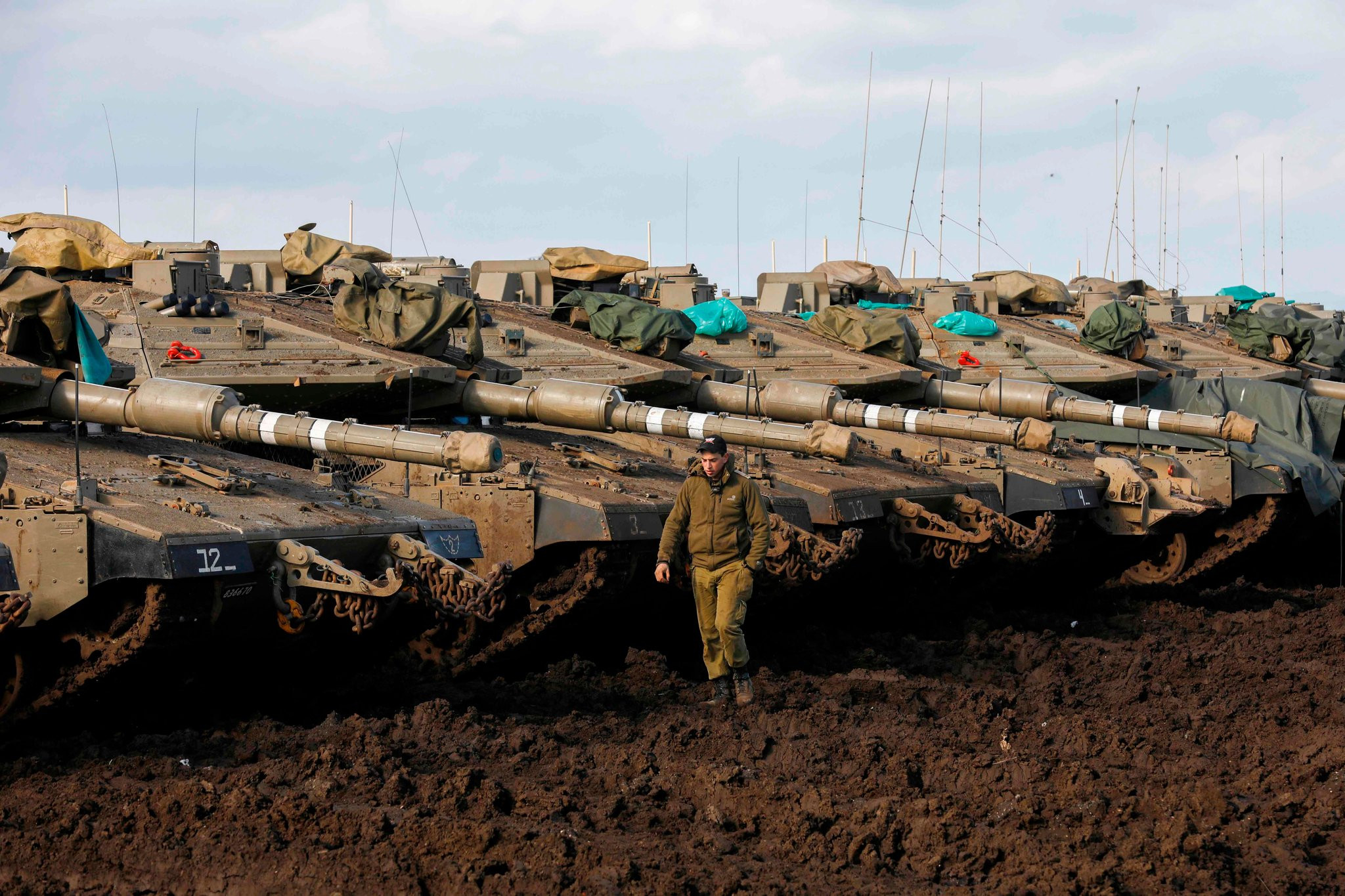After nearly 10 months of constant rocket and drone attacks across the Israel-Lebanon border, Israel and Hezbollah stand at the brink of full-scale war for the first time since 2006. But more dire than Hezbollah’s rocket arsenal is the threat that it will launch an Oct. 7-style ground incursion into Israel.
The immediate crisis is a result of what Israel officials say was a Hezbollah rocket attack that killed 12 Israeli Druze youths. Since the day after Hamas’ Oct. 7 massacre, Hezbollah has been firing rockets into Israel almost daily. While the majority of the strikes have used anti-tank guided missiles, the group has also used longer-range, more powerful munitions provided by Iran. That was apparently the case on July 27, when Hezbollah is accused of firing an Iranian Falaq-1 rocket toward the Israeli-controlled Golan Heights and striking a soccer field and playground in the Druze community of Majdal Shams. (Though Israel released data on the rocket and its trajectory that tie it to Hezbollah, the group has issued a rare denial of responsibility for the attack.)
Three days later, an Israeli airstrike killed the Hezbollah military commander Fuad Shukr in Beirut. And the day after that, an explosion widely attributed to Israel killed the Hamas leader Ismail Haniyeh at a guesthouse in Tehran. The region is now on pins and needles awaiting reprisals from Iran, Hezbollah and perhaps other Iranian proxy groups, risking escalation and wider war.
The Threat of a Ground Incursion
The Israeli military has been actively training for years to counter a Hezbollah plot to overrun Israeli communities, kill and kidnap civilians, and undermine Israel’s sense of security. Part of what was unexpected about Oct. 7 was that it happened on the southern rather than the northern border.
Hezbollah’s long-range missiles, however, pose a different threat than Hamas’ rockets. The group is capable of striking deep into Israeli territory, including Tel Aviv, and potentially forcing the evacuation of large numbers of people to Jerusalem and to the south.
The Stakes for Both Sides
The stakes for both Israel and Hezbollah are high. For Israel, a war with Hezbollah would be a major undertaking, potentially involving a large-scale mobilization of forces and a protracted conflict. The war could also damage Israel’s economy and international reputation.
For Hezbollah, a war with Israel would be a risky gamble. The group has been carefully building its strength over the years, but it is still no match for the Israeli military in terms of firepower or technology. A war could also lead to a major loss of life and damage to Lebanon’s infrastructure, which is already struggling with a major economic crisis.
The Potential for Escalation
The conflict between Israel and Hezbollah has the potential to escalate quickly and involve other regional powers. Iran, Hezbollah’s main backer, has already threatened to retaliate for the deaths of Shukr and Haniyeh. Other Iranian-backed militias in Syria and Iraq could also join the fight.
Turkey has also expressed support for Hamas and said it would provide weapons and drones. And the Houthis in Yemen, another Iranian-backed group, could escalate their attacks on Israel. If the conflict escalates, it could turn into a multi-front war, with significant consequences for the entire region.
The Path to De-escalation
Despite the high stakes and the potential for escalation, there is still hope for de-escalation. Both Israel and Hezbollah have shown a willingness to avoid full-scale war in the past. The United States, which has been trying to mediate between the two sides, is also working to prevent a wider conflict.
The key to de-escalation is likely to be diplomacy. Both sides need to be willing to compromise and to find a way to address each other’s concerns. The international community can also play a role in supporting efforts to reach a peaceful resolution.
A War No One Wants?
The vast majority of Israelis and Lebanese do not want a war. They know that such a conflict would be devastating for both sides. However, the leaders of both countries are under pressure from hardliners who are pushing for a confrontation. The situation is volatile and unpredictable, and a war could erupt at any moment.
The world is watching with concern as tensions between Israel and Hezbollah continue to rise. It is hoped that both sides will choose the path of diplomacy and avoid a war that would have catastrophic consequences for the region.


















